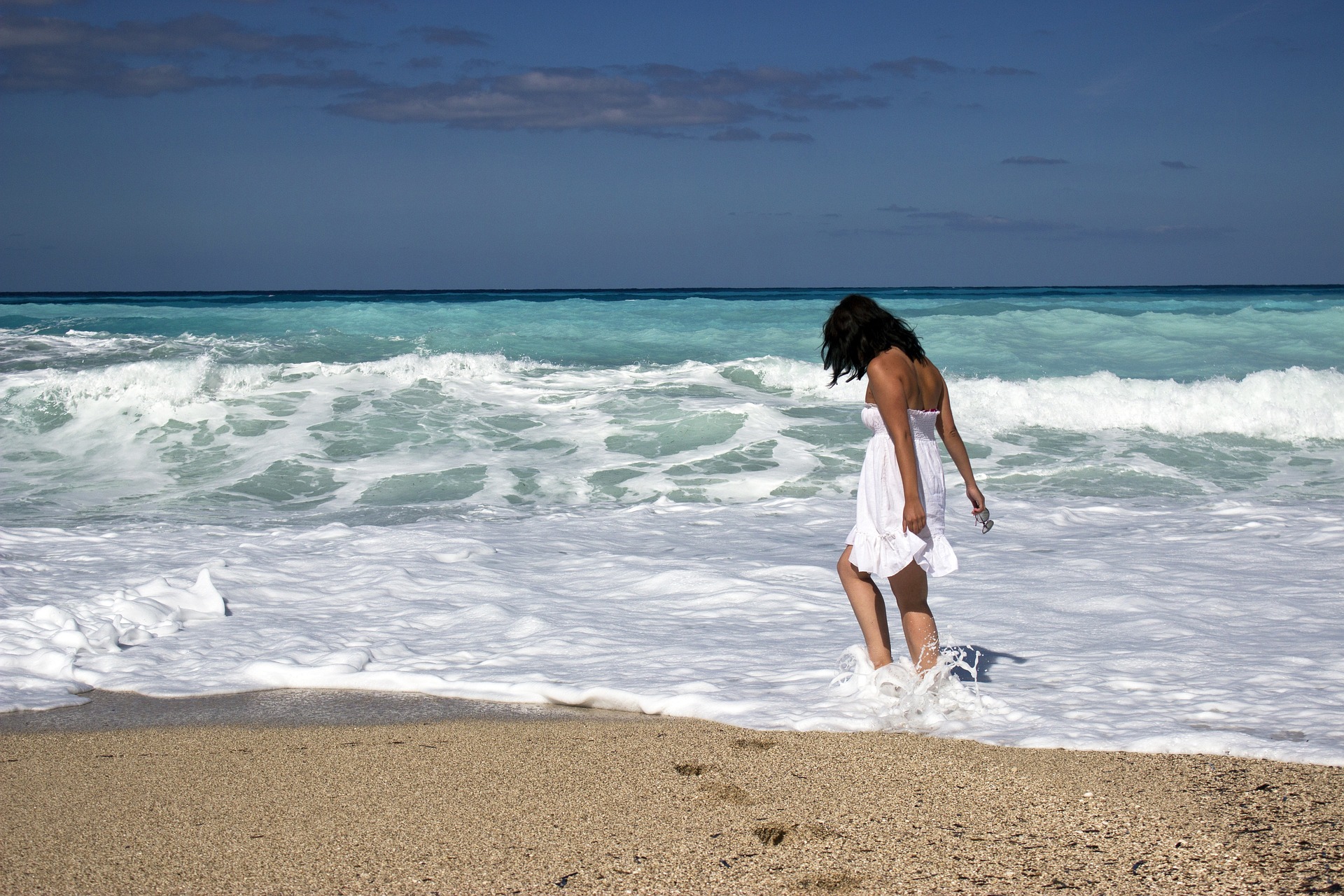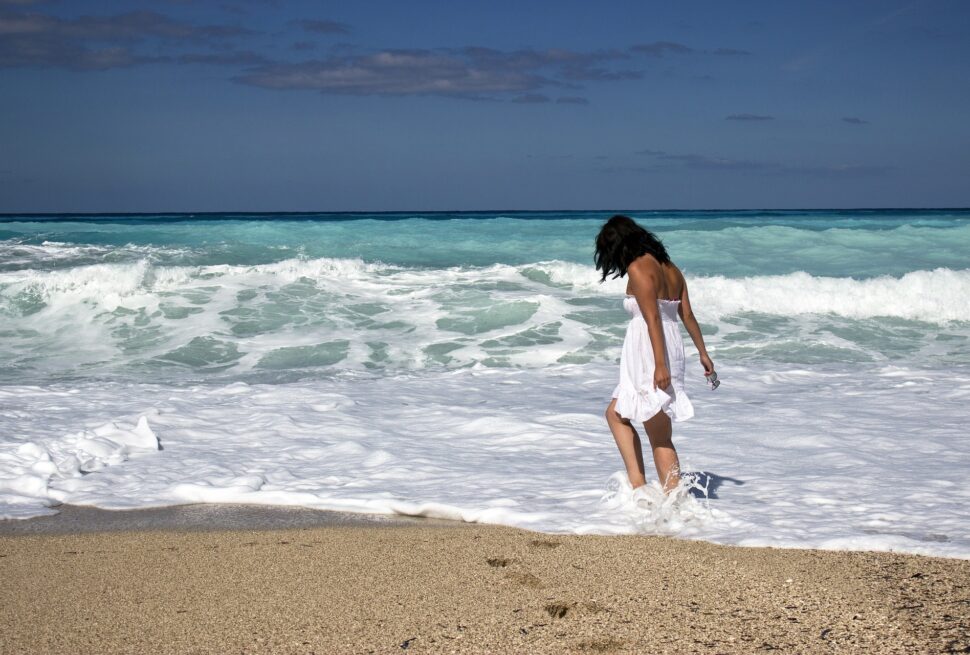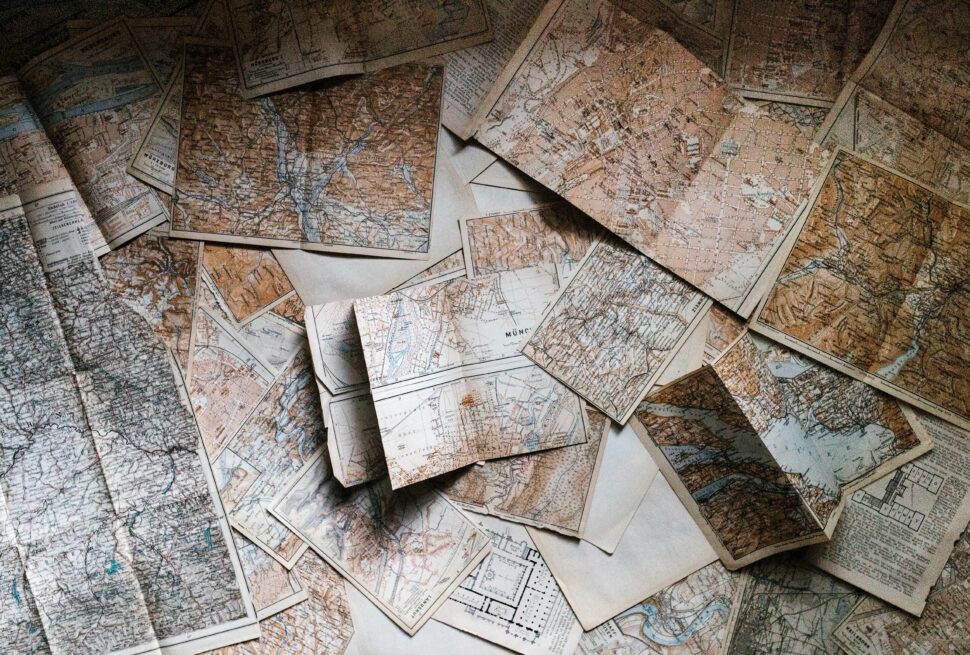Hey there, wanderlust! Have you ever wondered about how travel restrictions affect more than just your vacation plans? Well, get ready to dive into this enlightening article about the impact of travel restrictions on the economy. From the obvious effects on the tourism industry to the ripple effects on various sectors, we’ll explore how these limitations can shape the economic landscape. So, grab your virtual boarding pass and let’s take off on this informative journey together!
1. Travel Restrictions: A Game-Changer for the Global Economy
With the ongoing pandemic, travel restrictions have become a game-changer for the global economy. As countries around the world strive to contain the spread of the virus, it is essential to stay updated on the latest travel guidelines and restrictions. Here are some key points to keep in mind:
- Check travel advisories: Before planning your trip, make sure to check travel advisories issued by your government and the destination country. These advisories will provide valuable information on entry requirements, quarantine measures, and any travel restrictions in place.
- Research destination-specific restrictions: Different countries have different rules and regulations when it comes to international travel. Research and understand the specific travel restrictions of your intended destination to avoid any surprises upon arrival.
- Transportation options: Evaluate the available transportation options and choose the one that suits your comfort level and budget. Whether it’s flying, taking a train or bus, or renting a car, consider factors like cost, duration, safety measures, and flexibility.
- Accommodation considerations: Look for accommodations that prioritize hygiene and follow strict health protocols. Consider factors like location, cleanliness, cancellation policies, and overall safety measures in place.
- Flexible bookings: In these uncertain times, it is crucial to prioritize flexibility in your travel plans. Look for airlines, hotels, and travel agencies that offer flexible booking options or cancellation policies to ensure you can adapt to any unexpected changes or cancellations.
- Travel insurance: Invest in comprehensive travel insurance coverage that includes medical expenses and trip cancellation/interruption. Verify the policy’s coverage for disruptions caused by travel restrictions or unexpected events related to the pandemic.
By staying informed, flexible, and proactive, you can navigate the current travel landscape with confidence. Remember to always prioritize your health and safety, and be aware that travel restrictions can vary and change rapidly. Happy planning!
2. Dark Clouds on the Horizon: How Travel Restrictions Affect Economic Growth
With the recent outbreak of the global pandemic, travel restrictions have become a harsh reality for many countries around the world. These restrictions have not only impacted the health and safety of individuals but have also dealt a severe blow to the global economy. Here’s a closer look at how these travel restrictions are affecting economic growth:
1. Tourism industry takes a hit: The tourism industry is one of the hardest-hit sectors due to travel restrictions. With borders closed and flights grounded, the number of tourists visiting popular destinations has plummeted. This has led to a significant decline in revenue for airlines, hotels, restaurants, and local businesses that heavily rely on tourism. The loss of jobs and income in this sector has a domino effect on the overall economy, affecting not only those directly employed in the industry but also suppliers, transportation services, and other related sectors.
2. International trade suffers: Travel restrictions have also impeded international trade, leading to a slowdown in the economy. Businesses that depend on global supply chains have faced disruptions in importing and exporting goods. The inability to travel for business meetings and conferences has hindered the establishment of new partnerships and agreements, resulting in missed economic opportunities. Moreover, industries such as manufacturing, agriculture, and technology that heavily rely on international collaborations and investments have experienced setbacks due to the limitations on travel.
3. From Tourist Hotspots to Ghost Towns: The Devastating Effects of Travel Bans
Hey there, fellow wanderers! Today, let’s take a moment to reflect on the unfortunate consequences of travel bans and their impact on popular destinations around the world. While these restrictions are absolutely necessary in times of crisis, such as the recent global pandemic, they have undeniably transformed once-thriving tourist hotspots into eerie ghost towns. Here’s a glimpse into the aftermath and the importance of supporting these struggling communities when it’s safe to do so:
1. Economic Downturn and Job Losses: Travel bans have dealt a serious blow to the economies of many destinations that heavily rely on tourism. Without the influx of visitors, local businesses like restaurants, hotels, and tour operators suffer greatly, sometimes leading to temporary closure or even permanent shut down. Unfortunately, this translates into job losses, affecting the livelihoods of countless individuals who depend on tourism for their income.
2. Cultural Preservation at Risk: Tourism plays a crucial role in supporting the preservation of cultural heritage. With travel bans and the subsequent decline in visitors, the financial resources needed to maintain historical sites, museums, and traditional art forms become scarce. It’s disheartening to witness the potential loss of these invaluable cultural treasures, so when you finally get the chance to visit these places again, your support will be more important than ever.
4. Sinking Economies and Soaring Unemployment: The Harsh Realities of Travel Restrictions
Are you feeling down about the current state of travel restrictions? We feel you! The COVID-19 pandemic has had a devastating impact on economies and employment worldwide, and the travel industry is certainly not exempt.
While travel restrictions may limit our options, it doesn’t mean we can’t dream and plan for our next adventure. Here are a few things to keep in mind as you adapt to the new realities of travel:
- Stay updated: Keep yourself informed about the latest travel restrictions and guidelines issued by authorities. Websites like the World Health Organization (WHO) and the Center for Disease Control and Prevention (CDC) provide reliable information on travel advisories and safety guidelines.
- Support local: Many destinations have been hit hard economically, so consider visiting places within your own country or supporting local businesses once it’s safe to do so. Exploring hidden gems close to home can be just as exciting as traveling abroad.
- Flexible bookings: When making reservations for transportation or accommodations, prioritize flexible booking options. Many airlines and hotels offer refundable or reschedule-friendly policies, allowing you to adjust your plans if needed.
- Domestic getaways: Discover the beauty of your home country by planning domestic trips. Not only can this be a cost-effective option, but it also helps to support local tourism and the economy. Explore national parks, coastal retreats, or charming small towns you’ve never been to before.
- Health and safety first: Always prioritize your health and safety. Follow all guidelines, wear masks, practice good hand hygiene, and maintain social distancing. Remember, supporting travel businesses also means supporting the efforts they make to ensure travelers’ well-being.
Remember, even though travel restrictions are tough on the travel industry, we can still find ways to explore, connect with nature, and support local communities. Hang in there, and start planning your next adventure!
5. Dollars on Hold: How Travel Restrictions Stifle International Trade
The global travel restrictions implemented to combat the spread of the COVID-19 pandemic have had far-reaching implications for various sectors, including international trade. With borders closed and flights grounded, international business ventures have been put on hold, causing disruptions in supply chains and hindering economic growth. Here are some key ways in which these travel restrictions have stifled international trade:
1. Delayed shipments and logistics:
- Imports and exports have been severely affected due to the inability to transport goods internationally.
- Cargo ships have faced delays at ports, leading to increased costs and potential loss of perishable items.
- Transportation of raw materials and components for manufacturing has been significantly hampered, affecting production processes and delaying the delivery of finished products.
2. Disrupted business meetings and negotiations:
- With travel restrictions in place, in-person business meetings, conferences, and trade shows have been canceled or postponed.
- Virtual alternatives lack the same level of personal connection and may hinder effective negotiations and relationship-building between international business partners.
- Face-to-face interactions are often crucial for closing deals, exploring new business opportunities, and fostering trust.
These challenges highlight the need for innovative solutions and alternative methods to sustain international trade during these trying times. Governments, businesses, and organizations must work together to establish effective strategies that balance health concerns with economic recovery, ensuring the long-term growth and stability of global trade.
6. Grounded Flights and Empty Hotels: The Struggle of Tourism in a Restricted World
In these unprecedented times, the tourism industry has taken a major hit, with grounded flights and empty hotels becoming the new normal. However, as travel restrictions ease and the world slowly reopens, there are still plenty of opportunities for adventurers to explore while keeping safety at the forefront.
Whether you’re seeking a serene beach escape or a cultural city experience, there are a multitude of destinations to consider. Take a look at some of the top recommendations:
- Bali, Indonesia: Known for its stunning beaches, vibrant culture, and lush landscapes, Bali offers the perfect mix of relaxation and adventure.
- Santorini, Greece: With its iconic whitewashed buildings and breathtaking views of the Aegean Sea, Santorini promises a truly picturesque escape.
- Tokyo, Japan: Immerse yourself in the bustling energy of this metropolis, where ancient traditions merge with modern skyscrapers.
Now that you have some destination ideas, let’s talk about the logistics. Transportation options vary depending on your budget and comfort level:
- Flights: While flights may be limited, it’s still possible to find affordable fares. Look out for discounts and flexible booking policies to secure the best deals. Don’t forget to check for safety protocols implemented by airlines.
- Train or Bus: If you’re looking for a scenic journey, consider traveling by train or bus. This option not only allows you to soak in the beautiful landscapes but also provides an opportunity to experience the local culture up close. It’s a great way to explore destinations within a country.
- Rental Cars: For those who prefer more freedom and flexibility, renting a car is a fantastic option. It allows you to create your own itinerary and explore hidden gems along the way. Just remember to check the local driving rules and requirements.
Now that you know where to go and how to get there, the next step is finding the perfect accommodations. It’s a good idea to prioritize hotels with comprehensive safety protocols in place, ensuring your peace of mind during your stay. Keep in mind that many hotels have introduced flexible cancellation policies to accommodate changing travel plans.
7. Shuttered Borders, Dwindling Revenues: The Impact of Travel Restrictions on Local Businesses
As travel restrictions continue to limit the movement of people across the globe, local businesses in the tourism industry are facing the brunt of this crisis. From quaint souvenir shops to family-run restaurants, the impact of shuttered borders and dwindling revenues has been devastating. Here are some key insights into how travel restrictions are affecting local businesses:
1. Closure of tourism-dependent establishments: With travel restrictions in place, many businesses that heavily rely on tourism are forced to close their doors. This includes hotels, guesthouses, and tour operators. These establishments, which once thrived on the influx of visitors, now find themselves grappling with immense financial difficulties.
2. Loss of income and employment: The lack of tourists means a significantly reduced customer base for local businesses. As a result, numerous establishments are struggling to generate income, leading to layoffs and wage cuts. The livelihood of many individuals who work in the tourism sector is now at stake, amplifying the economic impact of travel restrictions.
8. Losing the Travel Battle: Assessing the Economic Fallout of Travel Restrictions
Travel restrictions have undoubtedly caused a significant economic fallout in the tourism industry. While the main priority remains the health and safety of travelers, it’s crucial to assess the impact and find ways to navigate these challenging times. Here are a few key considerations to keep in mind when dealing with the economic consequences of travel restrictions:
1. Support local businesses: During these difficult times, it’s essential to support local businesses in the travel industry. By choosing accommodations, restaurants, and tour operators that are locally owned and operated, you can contribute directly to the local economy and help these businesses stay afloat.
2. Explore staycations: If international travel is not an option, consider embarking on a staycation in your own country or region. Look for hidden gems, unique experiences, and lesser-known destinations that you may not have considered before. Not only will this support your local economy, but it may also lead to unexpected discoveries and a deeper appreciation for your surroundings.
9. Rebuilding Economies: The Long Road Ahead after Travel Restrictions Lift
As travel restrictions begin to ease worldwide, many destinations are slowly reopening their doors to tourists. While this is certainly exciting news for avid travelers, it’s important to consider the economic impact of the pandemic on local communities and prioritize destinations that could benefit from our support. By carefully choosing our travel destinations, transportation options, and accommodations, we can contribute to the revitalization of struggling economies. Here are some suggestions to keep in mind when planning your next adventure:
Choose Destinations in Need:
- Research destinations that heavily rely on tourism and have been hit hard economically.
- Consider lesser-known or emerging destinations that may have been overlooked in the past.
- Opt for places that have sustainable tourism initiatives in place, ensuring your visit has a positive impact on local communities and the environment.
Diverse Transportation Options:
- Support local transportation providers, such as independent airlines and train services, offering connections to your desired destination.
- Consider eco-friendly alternatives like public transportation, cycling, or walking to explore your chosen location.
- Utilize regional transportation passes or ticket bundles to save money and support local economies.
Accommodations with a Purpose:
- Look for hotels or guesthouses that actively engage in community development and employ local staff.
- Consider staying at eco-lodges or sustainable resorts that minimize their environmental impact.
- Support local businesses by opting for homestays or vacation rentals managed by individuals from the community.
Embracing responsible travel choices will help rebuild economies, encourage sustainability, and foster meaningful connections with local communities. So, start planning your next journey with an eye toward making a positive impact!
10. Lessons Learned: Examining the Permanent Changes in the Economy Post-Travel Restrictions
During the period of travel restrictions, the global economy witnessed several remarkable changes that have long-lasting implications. Let’s explore some of the lessons we’ve learned from this unprecedented time and how it has shaped the economic landscape.
1. Rise of Domestic Tourism: As international travel ground to a halt, many people turned their attention to exploring their own countries. Domestic tourism started to thrive, offering travelers a chance to discover hidden gems in their own backyard. This shift has not only contributed to the recovery of local economies but also highlighted the allure of exploring lesser-known destinations. Next time you plan a trip, consider venturing off the beaten path and supporting local communities.
2. Emphasis on Sustainable Travel: The pandemic provided an opportunity to reflect on our impact on the environment. More travelers are now prioritizing sustainability and seeking eco-friendly accommodations, transportation, and activities. From eco-lodges using renewable energy sources to electric bike rentals, options for responsible and green travel have expanded. Supporting businesses with sustainable practices not only helps reduce our carbon footprint but also encourages the tourism industry to prioritize the well-being of our planet.
In conclusion, it is undeniable that travel restrictions have had a profound impact on the global economy. From the tourism industry to businesses reliant on international trade, the effects have been far-reaching and severe. As we have discussed, the loss of revenue, job cuts, and decline in consumer spending are some of the key consequences of these restrictions.
However, it is important to note that these measures were implemented with the primary objective of safeguarding public health and minimizing the spread of infectious diseases. While the economic toll has been significant, it is a necessary sacrifice for the greater good.
As countries gradually lift travel restrictions and the world begins to recover, there is hope for a resurgence in the economy. Governments and businesses alike must adapt and innovate to meet the new demands and challenges of a post-pandemic world. Embracing digital transformation, investing in local tourism, and promoting domestic industries can help mitigate the impact of these restrictions and foster economic growth.
Finally, we must not forget the lessons learned from this ordeal. Collaborative efforts between nations, improved crisis preparedness, and enhanced healthcare systems are crucial for future resilience. By learning from the past and working together, we can ensure that the impact of travel restrictions on the economy is minimized should similar situations arise in the future.
Remember, while travel restrictions may have temporarily disrupted our lives, they serve as a reminder of the fragility and interconnectedness of our global economy. As we move forward, adapting and rebuilding, let us never lose sight of the importance of both public health and economic stability.




